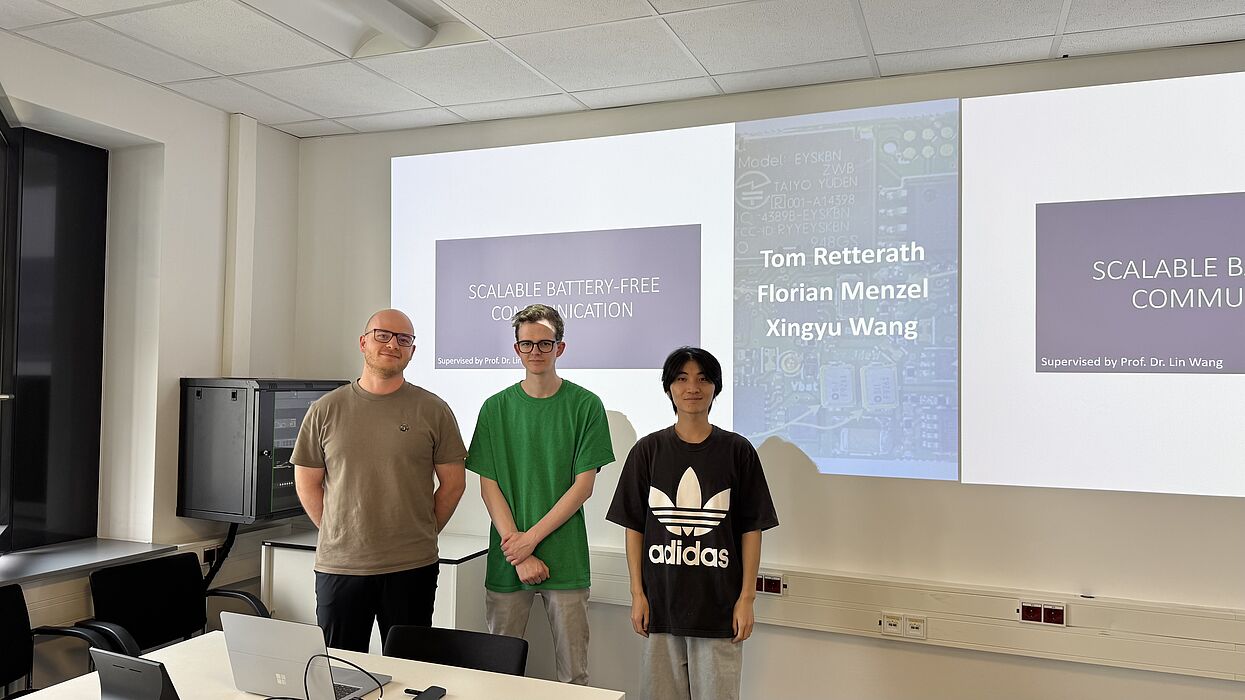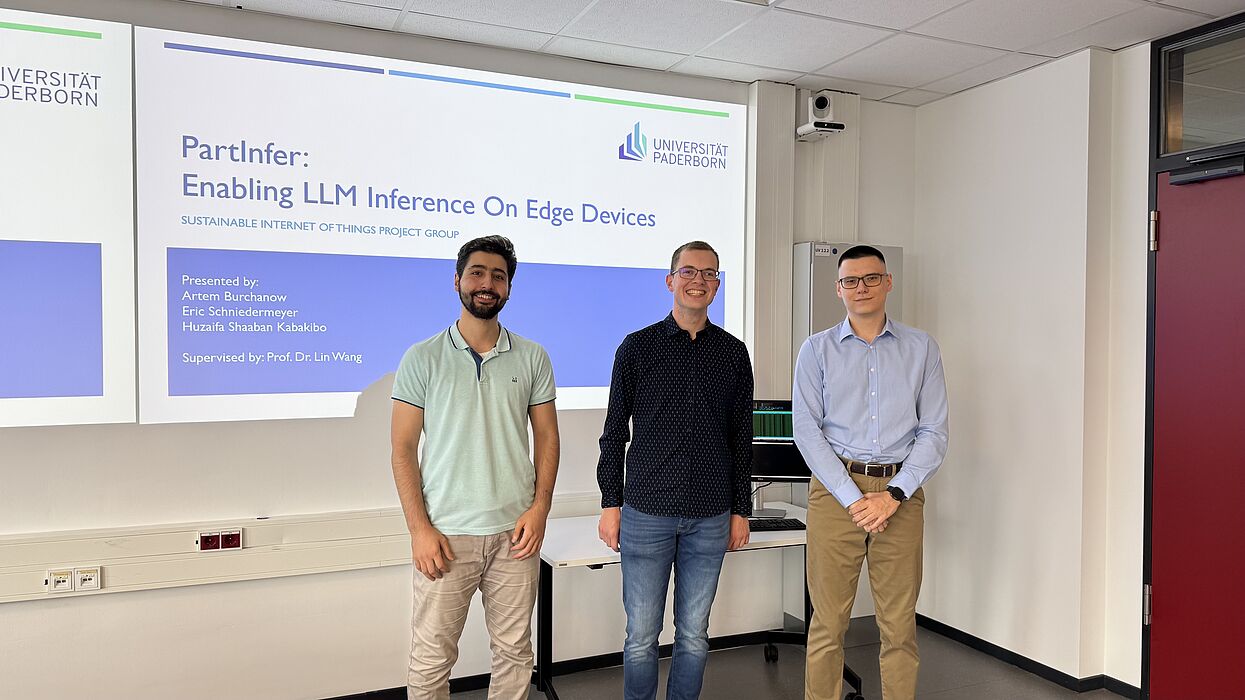On July 25, 2025, Master's students at the Computer Networks group presented their research results on sustainable Internet of Things (IoT). During the last two semesters, two subgroups of students focused on making battery-free IoT systems more efficient and enabling the fast and accurate inference of large language models (LLMs) on resource-constrained IoT devices, respectively. After one year of hard work, they have achieved significant research results.
Subgroup 1 (Florian Menzel, Tom Retterath, Xingyu Wang): Efficient communication for battery-free IoT systems. Battery-free devices work intermittently using energy harvested from the environment. Enabling the communication between these devices is a critical challenge. Our privous work has explored how to leverage a battery-powered beacon to coordinate battery-free communication. Based on that idea, this subgroup introduces a dynamical scaling mechanism for battery-free IoT networks that yields minimal device collisions during scaling and maximizes the network efficiency. Due to the fact that battery-free devices communicate intermittently, some devices may communicate more often than others. To address this, our approach utilizes the network more efficiently by not only providing an upscale functionality for when a new device needs to join the network, but also by removing devices from it under long poweroffs. The designed system was implemented and evaluated on battery-free Riotee devices together with a battery-powered nRF52840 development kit. The results show that this approach achieves minimal device collisions, increases the network efficiency, and provides a solution for dynamical scalability. This can be utilized further for future high-throughput extensions through data aggregation.
Subgroup 2 (Artem Burchanow, Huzaifa Shaaban Kabakibo, Eric Schniedermeyer): Large Language Model (LLM) inference on resource-constrained edge devices. Edge devices usually come with resource constraints with respect to both memory and compute, posing a big challenge for running resource consuming LLMs. This subgroup presents PartInfer, an approach to enable LLM inference on resource-constrained edge devices by selectively loading and computing only the most relevant neurons. Recognizing that not all neurons contribute equally to every task or prompt, we develop a profiling strategy to identify task-specific and general-purpose neurons. Our method includes two key optimizations: partial loading, which reduces memory consumption by only loading a subset of important neurons, and partial computation, which dynamically selects and computes the most relevant subset of those neurons during inference. Evaluated on a Jetson Orin Nano using the LLaMA 3.2-3B model across multiple NLP tasks, PartInfer demonstrates significant reductions in memory and compute requirements while preserving accuracy. It provides fine-grained control over hardware utilization and opens the door to LLM deployment in low-power environments like IoT systems.


